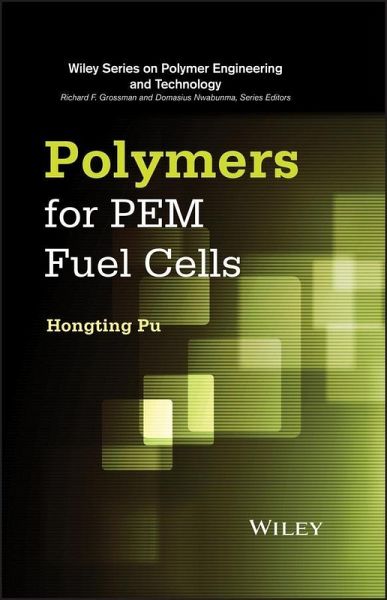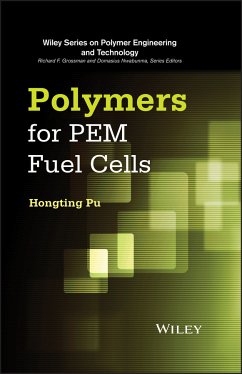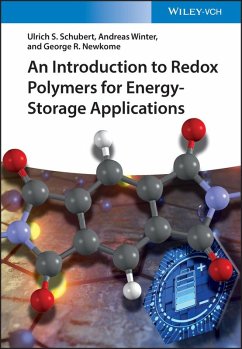
Polymers for PEM Fuel Cells (eBook, PDF)
Versandkostenfrei!
Sofort per Download lieferbar
136,99 €
inkl. MwSt.
Weitere Ausgaben:

PAYBACK Punkte
0 °P sammeln!
Including chemical, synthetic, and cross-disciplinary approaches; this book includes the necessary techniques and technologies to help readers better understand polymers for polymer electrolyte membrane (PEM) fuel cells. The methods in the book are essential to researchers and scientists in the field and will lead to further development in polymer and fuel cell technologies. * Provides complete, essential, and comprehensive overview of polymer applications for PEM fuel cells * Emphasizes state-of-the-art developments and methods, like PEMs for novel fuel cells and polymers for fuel cell cataly...
Including chemical, synthetic, and cross-disciplinary approaches; this book includes the necessary techniques and technologies to help readers better understand polymers for polymer electrolyte membrane (PEM) fuel cells. The methods in the book are essential to researchers and scientists in the field and will lead to further development in polymer and fuel cell technologies. * Provides complete, essential, and comprehensive overview of polymer applications for PEM fuel cells * Emphasizes state-of-the-art developments and methods, like PEMs for novel fuel cells and polymers for fuel cell catalysts * Includes detailed chapters on major topics, like PEM for direct liquid fuel cells and fluoropolymers and non-fluorinated polymers for PEM * Has relevance to a range of industries - like polymer engineering, materials, and green technology - involved with fuel cell technologies and R&D
Dieser Download kann aus rechtlichen Gründen nur mit Rechnungsadresse in A, B, BG, CY, CZ, D, DK, EW, E, FIN, F, GR, HR, H, IRL, I, LT, L, LR, M, NL, PL, P, R, S, SLO, SK ausgeliefert werden.













